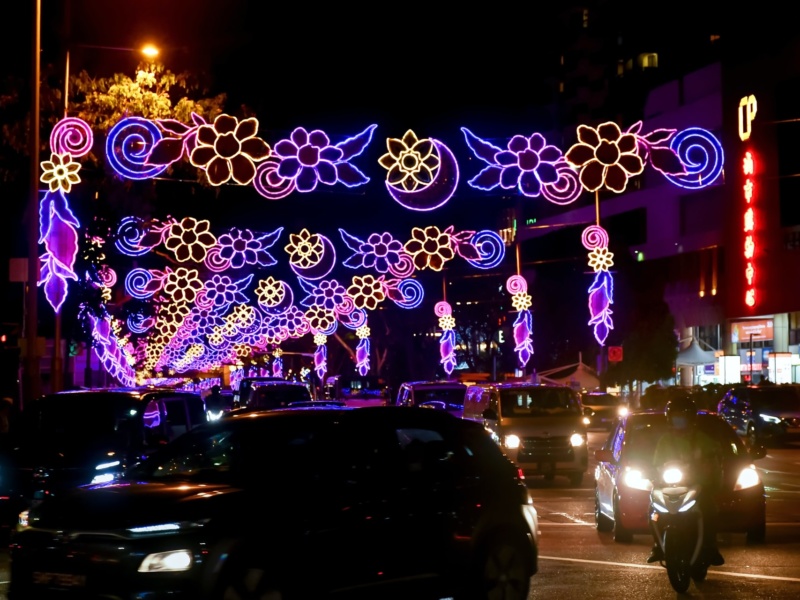As we come to the end of another Ramadan, we mark what is known as Hari Raya Aidilfitri in Singapore or Eid al-Fitr in other parts of the world. It’s a time to reflect and celebrate forgiveness and kindness, as well as follow time-honoured traditions over good food with family and friends.
Many families will buy new traditional clothes – ‘baju Melayu’ and ‘baju kurung’ – and typically the day can begin at the mosque for prayers, before gathering with family and friends.
My family will spend the day together at home and enjoy home cooked scrumptious dishes such as beef rendang (braised meat cooked in coconut milk and spices), sayur lodeh (vegetables cooked in coconut milk gravy) and sambal (spicy chilli paste)—along with fluffy white rice and ketupat (rice cakes). We also buy sweet treats like pineapple tarts, fruit cake and other cookies and cakes.
Another important custom is to give guests and children money in green packets, also known as sampul hijau or duit raya. Green packets are also given to the elders in the family as a form of respect, and this tradition of giving is considered as an act of charity based on the Islamic concept of zakat, whereby money is described as a share of wealth and the obligation towards society.
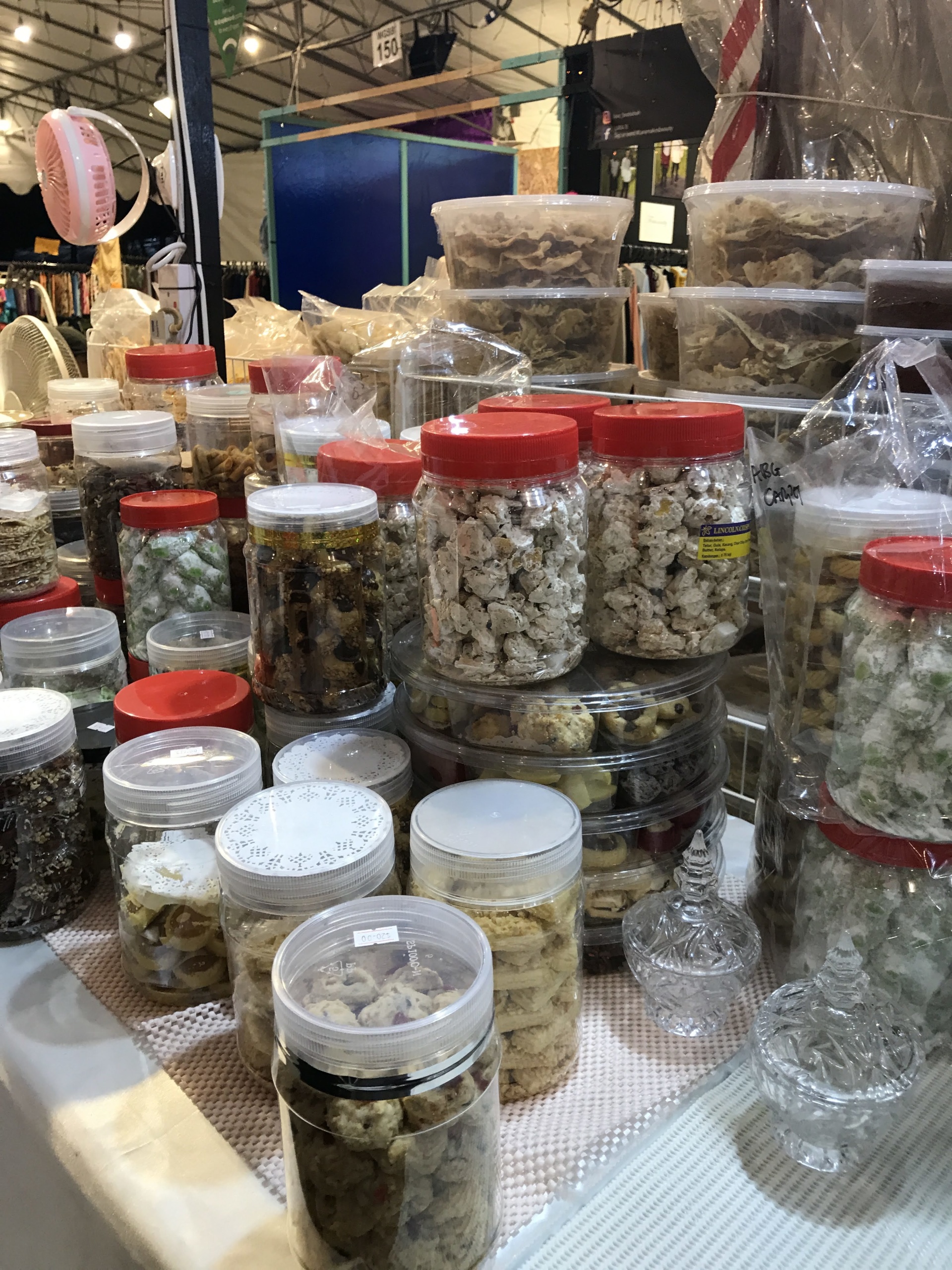
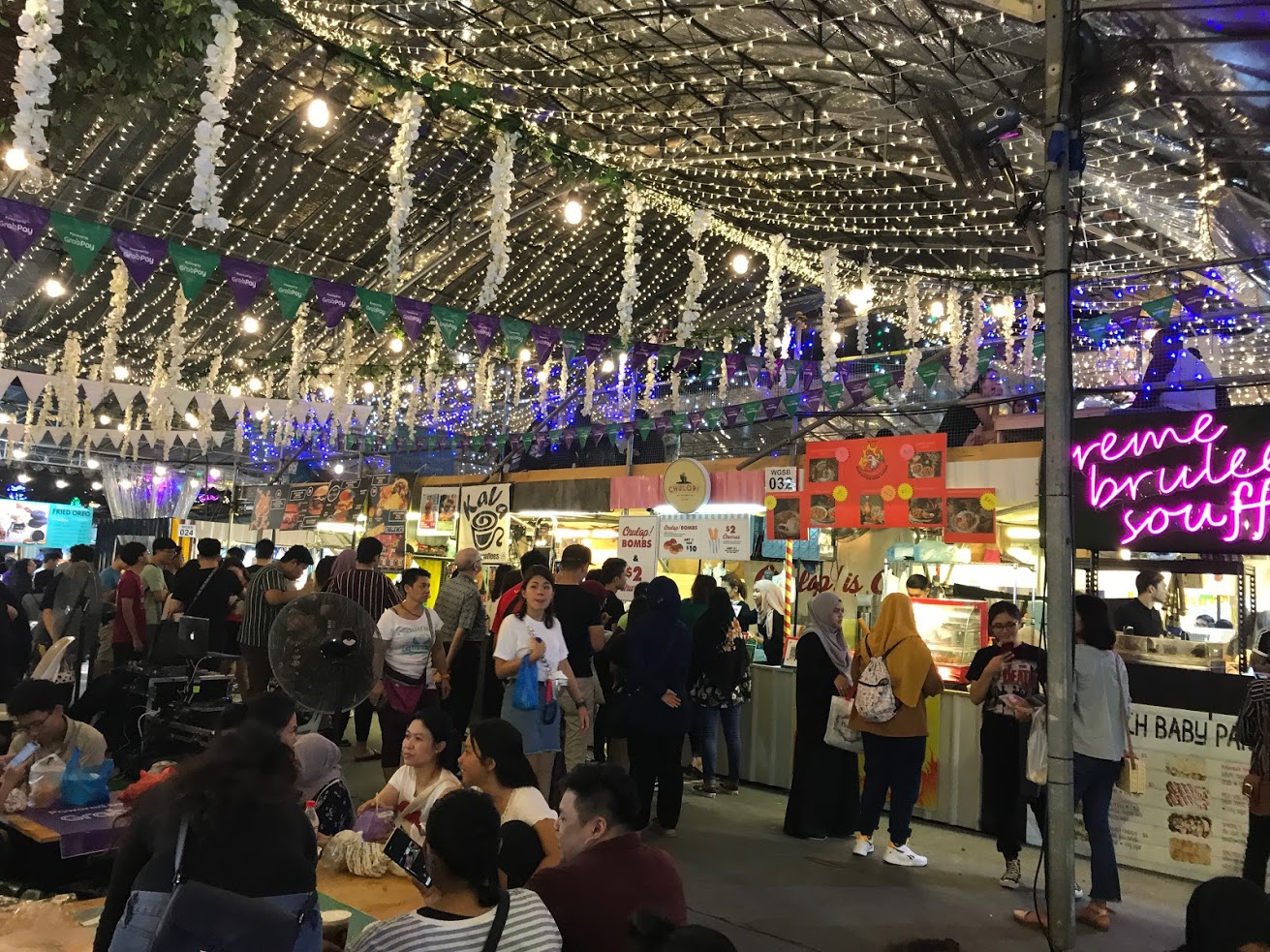
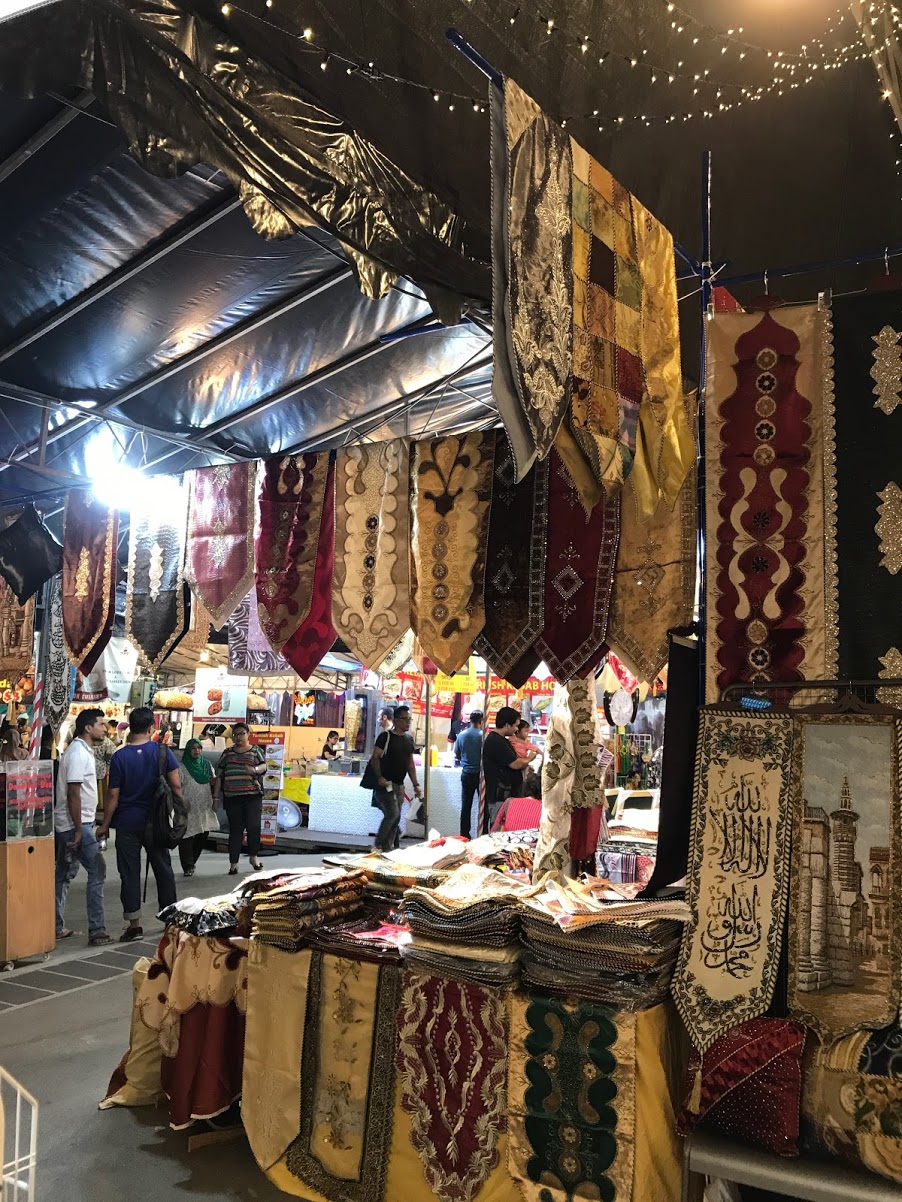
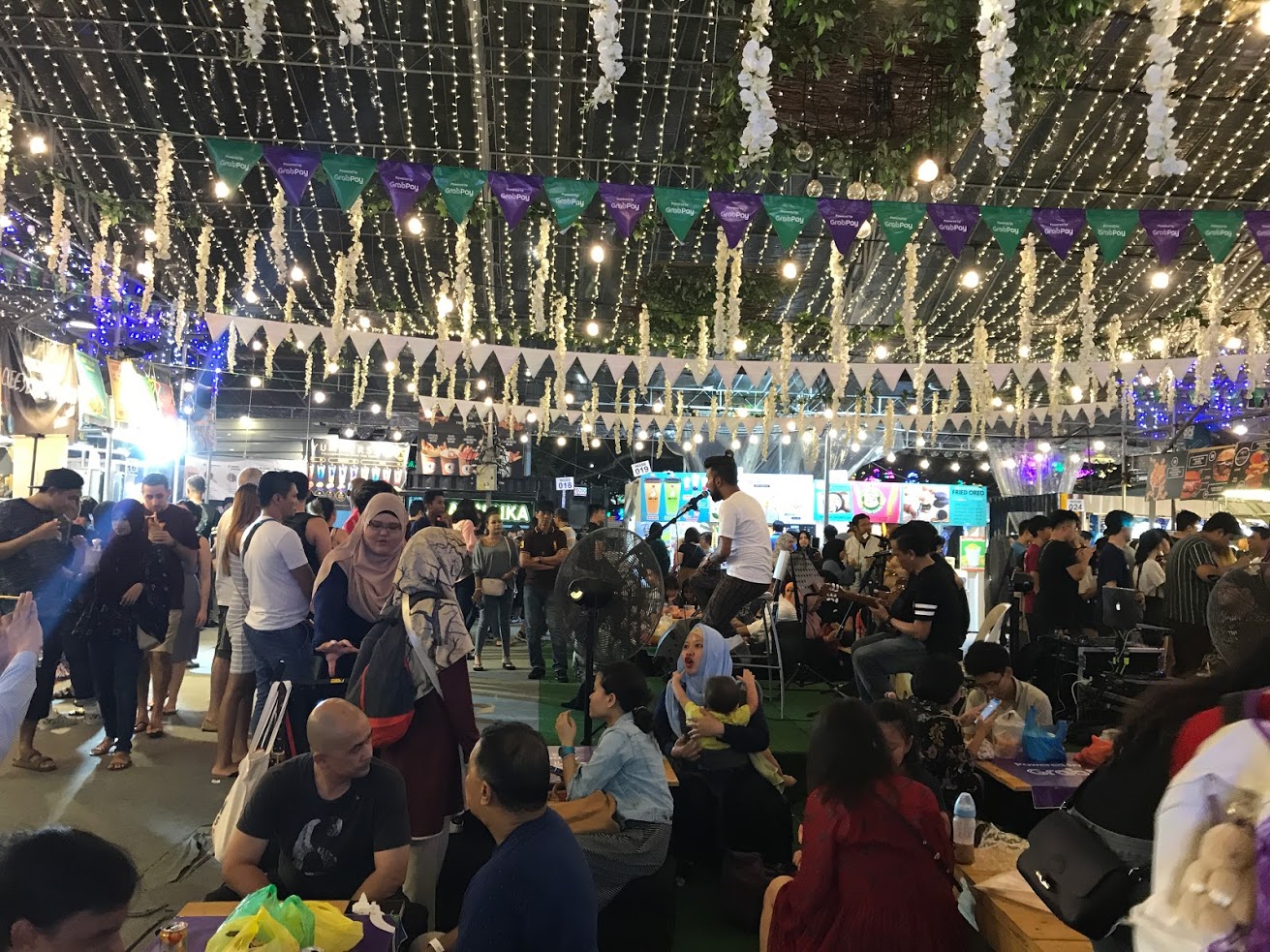
The month of Ramadan
Ramadan is celebrated in the ninth month of the Islamic calendar. Also known as the holy month, this is the time when healthy Muslims around the world fast between sunrise and sunset. Sick people, pregnant women and menstruating women are exempt from fasting for health reasons. Fasting not only means abstaining from food and drink during the day, but also from smoking. Muslims are also encouraged to refrain from swearing, gossiping, and fighting, amongst other things. Essentially, during this holy month, we are encouraged to be patient and do good deeds.
In Singapore, fasting usually starts at around 5:30am and ends around 7:00pm. Usually, those fasting wake up for suhoor (pre-dawn meal). This can be an elaborate meal, like what one normally eats for lunch or dinner, or it can be simple. Of course, a nutritious meal is always recommended to get us through the day. For me, a simple protein shake or smoothie and plenty of water are enough to get me through the day.
With the hot and humid weather in Singapore, fasting can be quite a challenge, especially for those who work outdoors. That’s where patience is important. It is also a time to remember the less fortunate and those who are living in hunger.
Iftar: breaking of fast
Iftar (breaking of fast) is a special occasion for many. When I was a kid, iftar was something I looked forward to because my mom would cook food that we don’t usually get to eat every day! And, we are not talking about one or two dishes here, but many! Also, if you have Muslim neighbours, we would exchange our dishes with each other since Ramadan is also considered the month of sharing and giving. After fasting all day, my hungry self naturally thought of eating everything, but once iftar started, I realised that there is so much you can eat!
As a kid, the iftar feast was the one that kept us going each year. Who can resist delicious food? It’s a great way to introduce kids to fasting, which is usually started half-day. However, as I get older and understand the true meaning of Ramadan, moderation is key – a simple meal after a date or two is enough. Yes, always have a bag of dates in your purse if you need to break your fast on the go! As quoted by Prophet Muhammad: “When one of you is fasting, he should break his fast with dates; but if he cannot get any, then (he should break his fast) with water, for water is purifying.”
Another memory I had as a child was standing in line at the mosque in the afternoon with our containers to get the free savoury rice porridge that was distributed for free during Ramadan. The savoury rice porridge is synonymous with Ramadan for me and the mosques were still giving it out until last year when they had to stop, due to the pandemic. It is a time of sharing and giving and some food stalls are nice enough to still distribute it for free.
Ramadan in Singapore: before and after COVID-19
Last year, when COVID-19 hit the world, we realised that the usual everyday things we take for granted would be stripped away. When the Singapore government implemented the “circuit breaker” measure, it was hard for most of us to adjust at first. The worst-hit were the elderly who live alone. During the circuit breaker, people from different households could not meet, so we weren’t even allowed to visit our elderly parents or relatives who don’t live with us. It also meant that all the things we were so accustomed to during Ramadan were not there.
In particular, every Ramadan, we would look forward to the colourful lights at the annual bazaar in Geylang. Every evening it would be bustling with hundreds of vendors selling different kinds of food for breaking the fast, clothes, beautiful curtains and rugs to decorate our house for Eid, so imagine how weird it was when it was cancelled for the first time since it began.
Ramadan is a time when my family visit our parents on the weekends and have a nice meal together. Thankfully, we can do this again this year! What also makes Ramadan so special is the sense of community that is more apparent during this time. From the sharing of food among neighbours to the free food and donations given out by various groups to the less fortunate, this is the month when we also see more people doing charity work and giving donations. While these are values that should always be practised, it is heartwarming to see so many people helping each other.
Hopefully, this Eid we will see the continuation of kindness in the community. Here’s wishing all those who are celebrating – Eid Mubarak!
